Lemon Skunk (aka Lemon Skunk OG)
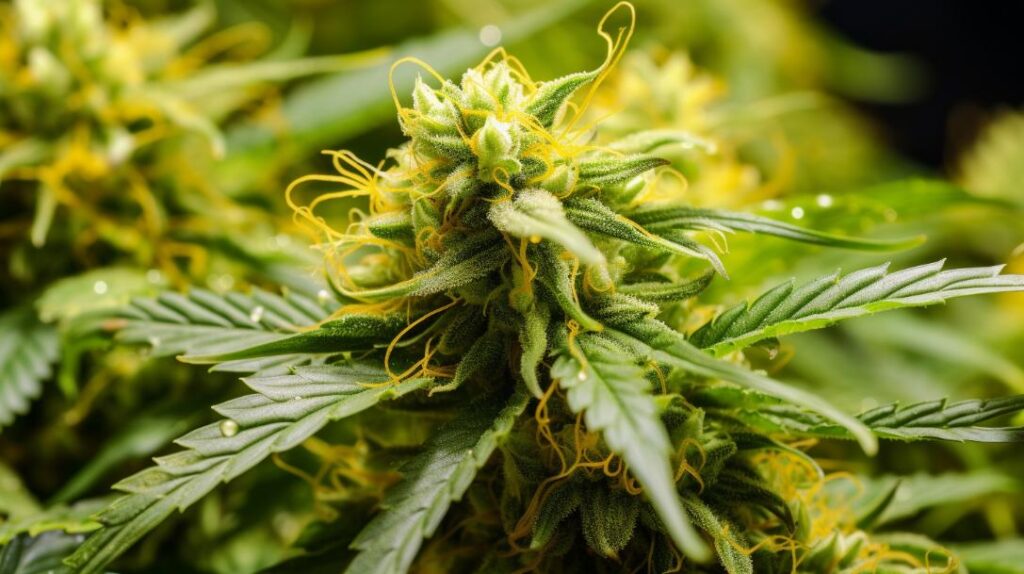
In the diverse world of cannabis strains, Lemon Skunk stands out as a sativa-dominant hybrid, characterized by its unique blend of energizing effects and a complex flavor profile that intrigues connoisseurs and casual users alike.
Originating from two distinct Skunk phenotypes, this strain marries a pungent, skunky aroma with the refreshing zest of lemon, creating an olfactory experience as distinctive as its effects.
Known for its ability to provide a mellow yet buzzy energy, Lemon Skunk has garnered acclaim for its therapeutic potential, particularly in addressing stress, depression, and anxiety. Its relatively high THC content amplifies its desirability, positioning it as a strain of interest for those in pursuit of an uplifting experience.
However, the full scope of Lemon Skunk’s appeal extends beyond its immediate effects and into its genetic lineage, terpene profile, and the nuanced interplay between its components. As we explore these facets further, we uncover a strain that is not only a testament to the artistry of cultivation but also a focal point for ongoing research and discussion within the cannabis community.
Genetic Lineage
The Lemon Skunk strain, a distinguished hybrid cannabis variety, owes its unique genetic composition to the crossbreeding of two distinct Skunk #1 phenotypes. One hails from Las Vegas, United States, and the other originates from the Netherlands, meticulously selected by DNA Genetics. This deliberate and precise selection process underscores the expertise and innovative approach of DNA Genetics in breeding superior cannabis strains.
The hybridization of these two Skunk phenotypes has resulted in a strain that exhibits a remarkable balance of sativa and indica characteristics, making it a standout among hybrid strains.
The genetic lineage of Lemon Skunk is further enriched by the inclusion of Citrus Skunk and Skunk #1, imbuing it with a pronounced lemon flavor and aroma that is both refreshing and pungent. This combination not only enhances its sensory appeal but also contributes to its potent effects, which include an uplifting cerebral stimulation and a soothing body stone.
The strain’s visual appeal is marked by its medium-green leaves adorned with patches of yellow or golden oranges, complemented by thick orange hairs. This meticulously crafted genetic profile, emphasizing the unique qualities of its Skunk phenotypes, is a testament to the breeding prowess of DNA Genetics and positions Lemon Skunk as a classic and widely admired strain in the cannabis community.
THC/CBD Content
Lemon Skunk, with its THC content averaging 18% and a nominal CBD level of approximately 0.5%, stands as a high THC, low CBD cannabis strain, well-regarded for its potent, energetic, and uplifting effects. This particular strain demonstrates a notable THC range of 15% to 22%, positioning it as a versatile option for both recreational and medicinal users seeking a balance between a heady, peppy cerebral high and the therapeutic benefits associated with high THC levels.
The low CBD content, around 0.5%, indicates that while Lemon Skunk may not be the first choice for conditions predominantly responsive to CBD, it excels in addressing symptoms related to depression, nausea, chronic pain, and everyday stresses.
This strain’s genetic makeup leans towards a sativa-dominant hybrid, with a 60% sativa to 40% indica ratio. This composition contributes to its ability to provide a boost of energy and creativity shortly after consumption, although some may experience a mild indica-like relaxation or slight sleepiness after 1-2 hours. Users of the Lemon Skunk strain should be aware of common side effects such as dry eyes, while also benefiting from its ability to stimulate appetite and alleviate nausea.
Terpene Profile
Moving beyond its cannabinoid content, Lemon Skunk’s distinctive effects and aroma are significantly shaped by its rich terpene profile, particularly dominated by myrcene. This sativa-dominant hybrid leverages a complex terpene composition to deliver its characteristic lemony taste along with a range of therapeutic and recreational benefits.
The primary terpenes contributing to Lemon Skunk’s profile include:
-
Myrcene: Predominant in Lemon Skunk, myrcene is known for its earthy, musky notes resembling cloves. It offers a relaxing effect, potentially aiding in stress relief and enhancing the sedative quality of THC.
-
Terpinolene: This terpene contributes to the strain’s unique citrusy, lemon aroma and flavor. It is also associated with uplifting effects, promoting a focused and energetic experience.
-
Beta Caryophyllene: Adding a spicy edge to the lemony taste, beta caryophyllene is noted for its potential to relieve anxiety and pain, contributing to the strain’s medicinal benefits.
-
Entourage Effect: The synergy among these terpenes, along with THC and other cannabinoids, creates a complex bouquet of effects and aromas, enhancing both the recreational and medicinal value of Lemon Skunk.
This intricate terpene profile not only defines Lemon Skunk’s appealing aroma and flavor but also plays a crucial role in its reported effects, including the potential for relaxation and relief from conditions like stress, depression, and anxiety.
Effects
Harnessing a potent THC concentration of 18%, Lemon Skunk unfolds an array of effects characterized by an energizing and mood-elevating buzz. This cultivar, renowned for its uplifting and energetic influence, fosters an environment where creativity and happiness flourish. The synergy between its high THC content and the dominant terpene, myrcene, underpins both the strain’s capacity to alleviate stress and its role in stimulating a buoyant, creative mindset.
However, the robust potency of Lemon Skunk also brings with it the potential for certain negative effects, notably dry mouth and eyes, which are common across strains with high THC levels. More sensitive individuals may also experience heightened anxiety, paranoia, or dizziness, underscoring the importance of moderation and the suitability of this strain for those with a tolerance or experience with cannabis.
Moreover, Lemon Skunk’s efficacy in treating symptoms of stress, depression, and anxiety highlights its therapeutic value. Its ability to deliver potent effects while simultaneously offering relief from these conditions makes it a compelling choice for patients seeking both psychological uplift and symptom management.
The careful balance of effects, both positive and therapeutic, positions Lemon Skunk as a nuanced strain within the cannabis landscape.
Medical Uses
Building on its notable uplifting effects, Lemon Skunk also demonstrates significant therapeutic applications, particularly in the realm of medical uses. Catering to a wide variety of needs, this strain has become a go-to option for cannabis consumers seeking relief from several conditions, underpinned by its unique cannabinoid and terpene profile.
The medical benefits that Lemon Skunk offers are multifaceted, encompassing both psychological and physical realms.
-
Appetite Stimulation and Nausea Relief: Lemon Skunk is highly regarded for its ability to counteract loss of appetite and nausea, providing essential support for individuals undergoing treatments like chemotherapy or battling eating disorders.
-
Mood Enhancement: Its uplifting effects make it a potent ally in the fight against depression, offering cerebral stimulation that can significantly improve mood and foster a sense of well-being.
-
Anxiety and Stress Management: The strain’s capacity to induce a calming yet energizing effect makes it valuable for those suffering from anxiety and stress, promoting relaxation while maintaining focus.
-
Pain Relief: Lemon Skunk possesses analgesic properties that can be effective in managing chronic pain, delivering a complex high that potentially eases discomfort while engaging the mind.
For cannabis consumers, Lemon Skunk represents a therapeutic bridge between mental clarity and physical ease, making it a favored choice among those seeking comprehensive symptom relief.
Flavor and Aroma
Delving into the sensory experience of Lemon Skunk, the strain’s distinctive flavor and aroma profile stands out, characterized by its skunky, lemon-infused nuances that appeal to both the palate and olfactory senses.
The initial introduction to Lemon Skunk is marked by a skunky aroma, enriched with a deliciously potent lemony essence, providing a unique and pleasant inhalation experience that sets it apart from other strains. This powerful lemon citrus aroma, underscored by skunky undertones, creates a distinctive and enticing scent profile that captivates users upon first encounter.
Visually, Lemon Skunk is equally appealing, with thick orange hairs and light green nugs that are not only vibrant but also indicative of its rich flavor profile. The strain’s buds, adorned with patches of yellow or golden oranges against medium-green leaves, offer a striking appearance that complements its intriguing flavor and aroma.
The flavor profile itself is characterized by zesty lemon undertones intertwined with a skunky, sweet taste and hints of citrus fruit, contributing to its unique and memorable flavor. This complex combination of sensory attributes makes Lemon Skunk a strain with a deeply engaging aroma and flavor profile, appealing to connoisseurs seeking a rich and multifaceted cannabis experience.
Appearance
Reflecting its vibrant flavor profile, Lemon Skunk’s appearance is marked by thick orange hairs and light green nugs, presenting an aesthetically pleasing visual contrast. The strain’s distinct characteristics make it a visually striking choice not only for consumers but also for cultivators who appreciate the beauty in their harvest.
To create a vivid imagery in the audience’s mind, consider the following elements of Lemon Skunk’s appearance:
-
Thick Orange Hairs: These vibrant hairs wrap around the buds, standing out against the lighter backdrop, enhancing the strain’s visual appeal.
-
Light Green Nugs: The nugs are a soft, light green, providing a subtle canvas that makes the orange hairs even more prominent.
-
Patches of Yellow or Golden Oranges: Sporadically placed, these patches add depth and complexity to the visual presentation of the buds, reflecting the strain’s lemony lineage.
-
Dense, Compact Flowers: Lemon Skunk’s flowers are tightly packed, showcasing a high calyx-to-leaf ratio which not only makes for an attractive bud structure but also indicates a high-quality harvest.
This combination of features contributes to Lemon Skunk’s popularity, not only for its aesthetic qualities but also for its potent effects and high yield potential.
Grow Information
Cultivating Lemon Skunk requires attention to specific environmental conditions to optimize its growth and potentiate its distinctive citrus aroma. This particular strain thrives in a controlled environment where temperature and humidity can be closely monitored. For optimal results, maintaining temperatures between 68-80°F (20-26°C) during the day and a slight decrease at night is crucial. Humidity levels should be adjusted according to the plant’s growth stage, with higher humidity for vegetative growth and lower humidity during flowering to prevent mold and mildew.
The Lemon Skunk strain has a moderate to high resistance against pests and diseases, making it a robust choice for both novice and experienced cultivators. Its flowering time is approximately 7-9 weeks when grown indoors, with outdoor plants ready for harvest by late September to early October. This strain is known for its generous yields, producing up to 18 ounces per square meter indoors and over 20 ounces per plant outdoors under optimal conditions.
Grow information also highlights the importance of regular pruning to ensure adequate light penetration and air circulation within the canopy. Such practices not only enhance the overall health of the plant but also maximize the production of its signature lemony terpenes, ensuring a high-quality harvest.
Adverse Effects
While the Lemon Skunk strain offers numerous benefits, it is essential to be aware of its potential adverse effects, including dry mouth, dry eyes, and instances of paranoia or anxiety, particularly at higher doses. The lemon skunk strain, renowned for its vibrant aroma and potent effects, can lead to some unwanted reactions in sensitive individuals or when consumed in excess. Understanding these adverse effects is crucial for a balanced and safe experience.
-
Dry Mouth and Dry Eyes: These are the most common adverse effects associated with the lemon skunk strain. Prolonged feelings of dryness can be uncomfortable and are often accompanied by a noticeable decrease in saliva production and eye lubrication.
-
Paranoia and Anxiety: Some users report heightened feelings of paranoia and anxiety, which tend to intensify with higher doses. This underscores the importance of dosage control and the need for users to be mindful of their tolerance levels.
-
Dizziness and Lethargy: Inexperienced users or those consuming high doses might experience dizziness or a sense of lethargy, making it advisable to avoid operating heavy machinery or engaging in activities requiring full cognitive functions.
-
Long-lasting Effects: The prolonged effects of dry mouth and eyes can lead to discomfort long after the initial consumption, emphasizing the need for responsible usage and adequate hydration.
Comparisons with Similar Strains
Exploring the landscape of sativa-dominant strains, Lemon Skunk distinguishes itself through unique characteristics when compared to similar strains such as Lemon Haze, Super Lemon OG, Lemon Kush, Lemon Diesel, and Lemon OG.
Lemon Skunk and Lemon Haze both offer uplifting effects and share a citrus flavor profile, yet Lemon Haze might edge out with a more intense cerebral high and potentially higher THC levels.
Comparatively, Super Lemon OG presents a more balanced indica/sativa ratio, weaving together energetic and relaxing effects, diverging from Lemon Skunk’s more pronounced sativa dominance.
In the case of Lemon Kush, both strains boast citrusy undertones and uplifting sensations, but Lemon Kush tilts towards an indica influence, offering a more nuanced high that combines energy with relaxation.
Lemon Diesel, sharing the zesty lemon aroma with Lemon Skunk, could potentially pack a stronger punch in terms of THC content, leading to a more robust cerebral stimulation.
Lastly, Lemon OG, while also sativa-dominant and citrus-flavored like Lemon Skunk, may offer users a more balanced experience, blending uplifting and calming effects, which could be a preferable option for those seeking milder energizing qualities.
Research and Studies
Diving into the realm of scientific inquiry, research on the Lemon Skunk strain sheds light on its potential therapeutic benefits, user experiences, and optimal cultivation practices. This investigation encompasses a broad spectrum of studies focusing on its unique properties and effects.
-
Medical Benefits: A cornerstone of research on the Lemon Skunk strain revolves around its potential in addressing psychological conditions such as stress, depression, and anxiety. Emerging studies suggest that its specific terpene and cannabinoid composition may contribute to these therapeutic effects, offering a natural alternative for symptom management.
-
Cultivation Research: Scholars and cultivators alike have delved into identifying the strain’s optimal growing conditions. Research suggests that Lemon Skunk thrives under specific light, temperature, and nutrient regimens, which can significantly affect its yield and potency.
-
User Experience Studies: Through surveys and anecdotal reports, researchers have begun to map out the subjective effects of Lemon Skunk. These studies highlight its popularity for providing a balanced high, marked by uplifting cerebral effects and a soothing body relaxation, alongside its distinctive citrus aroma.
-
Terpene and Cannabinoid Analysis: Detailed scientific analysis has outlined the Lemon Skunk strain’s rich terpene profile and cannabinoid content. Such studies aim to understand the synergy between these compounds, offering insights into its aroma, flavor, and enhanced therapeutic potential.
History and Origin
The Lemon Skunk strain, developed by DNA Genetics, is a product of carefully selecting and breeding two distinct Skunk phenotypes, one from Las Vegas, USA, and the other from Holland, Europe, marking a significant milestone in cannabis cultivation history. This hybrid strain emerged as a blend of two geographically diverse Skunk variants, combining their best traits to create a strain celebrated for its strong lemon flavor and scent. The Lemon Skunk strain’s history and origin are not just a tale of successful hybridization but also a narrative of international collaboration and genetic excellence.
| Feature | Lemon Skunk Strain Detail | Impact on Cultivation |
|---|---|---|
| Parentage | Vegas Skunk (Mother) and Holland Skunk (Father) | Brought together diverse genetic traits |
| Recognition | Top 10 Strains by High Times in 2009 | Highlighted its quality and popularity |
| Yield | Up to 600 g/m² | High productivity for breeders |
| Harvest Time | October (Northern Hemisphere) | Strategic cultivation timing |
This strain not only stands out for its distinctive citrus aroma and visual appeal, with its light green color and orange hairs but also for its uplifting and creativity-inducing effects. The Lemon Skunk strain’s development highlights the importance of selective breeding in enhancing specific cannabis traits, thereby contributing significantly to its history and origin.
Frequently Asked Questions
Is Lemon Skunk a Sativa or Indica?
Determining whether a cannabis strain leans towards sativa or indica involves examining its cultivation challenges and terpene profile. Such analysis is crucial in understanding a strain’s effects, energy levels, and potential therapeutic benefits.
What Strain Is Lemon Sweet Skunk?
Lemon Sweet Skunk is a distinct strain characterized by its Skunk genetics and notable Lemon flavor profile, offering a unique blend of citrus notes. This strain is appreciated for its aromatic presence and genetic heritage.
Who Made Lemon Skunk?
Lemon Skunk was developed by DNA Genetics, employing advanced breeding techniques to combine two Skunk phenotypes with prominent lemon characteristics. This meticulous selection underscores the strain’s genetic origins and the breeders’ expertise in strain development.
Is Lime Skunk a Good Strain?
Lime Skunk, distinct from Lemon Skunk, is recognized for its vibrant flavor profile, combining citrus notes with a skunky aroma. Its cultivation presents a moderate growing difficulty, appealing to those with some experience in horticulture.

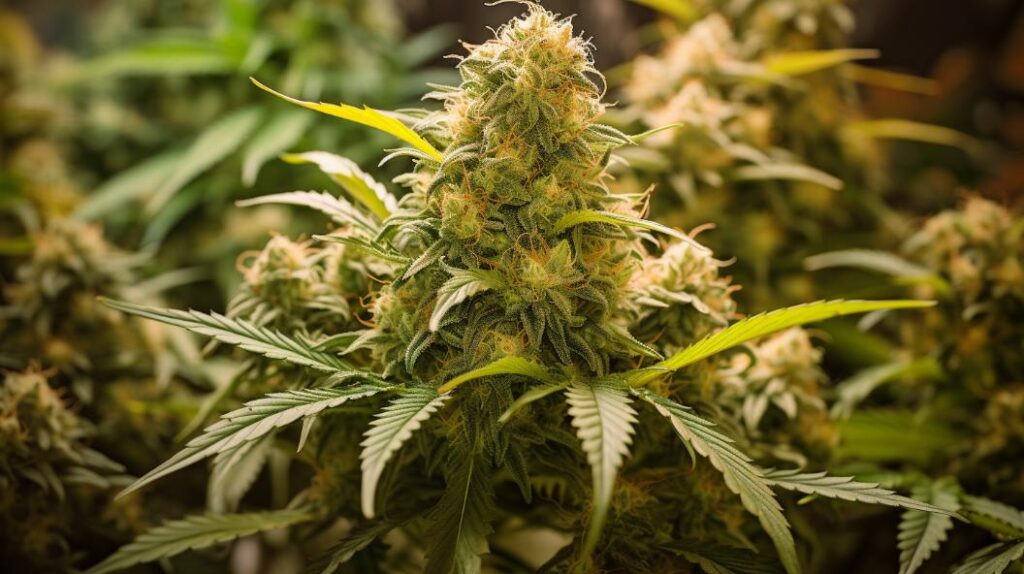
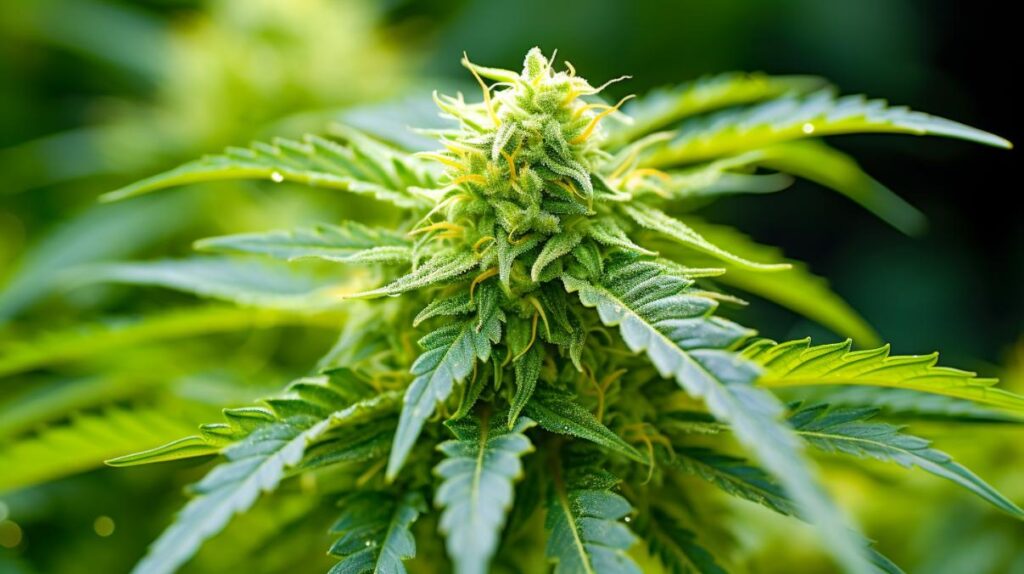
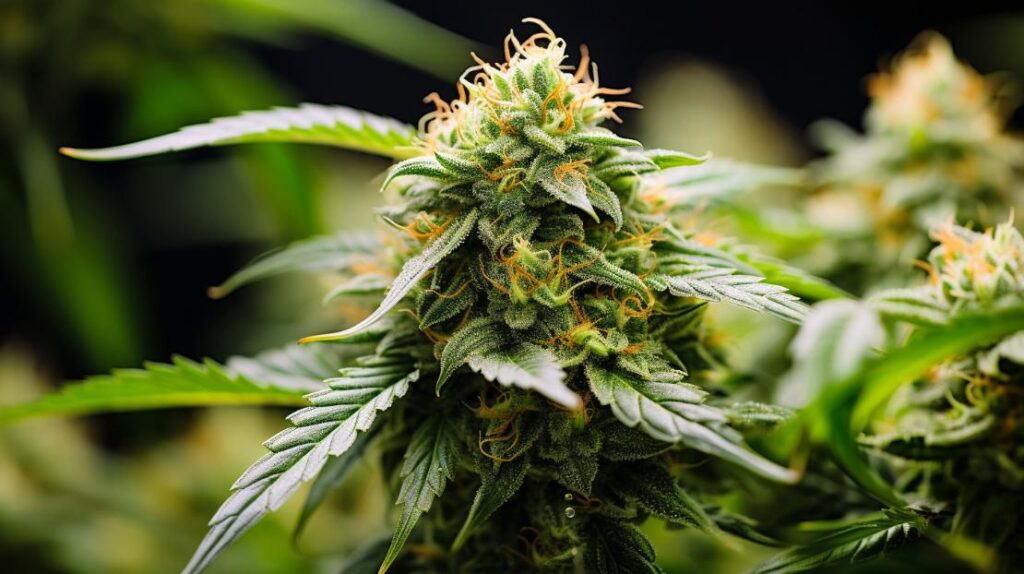
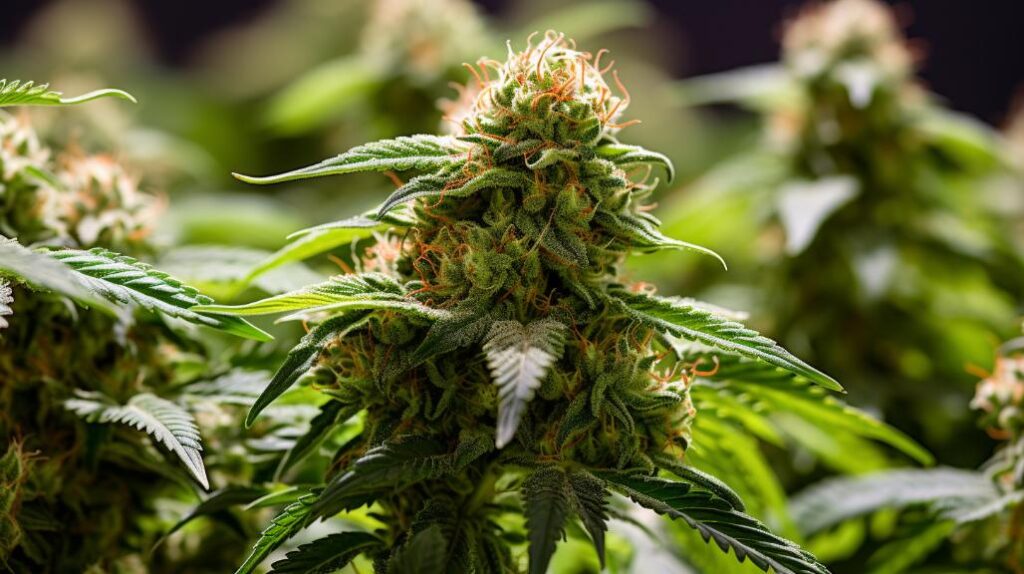
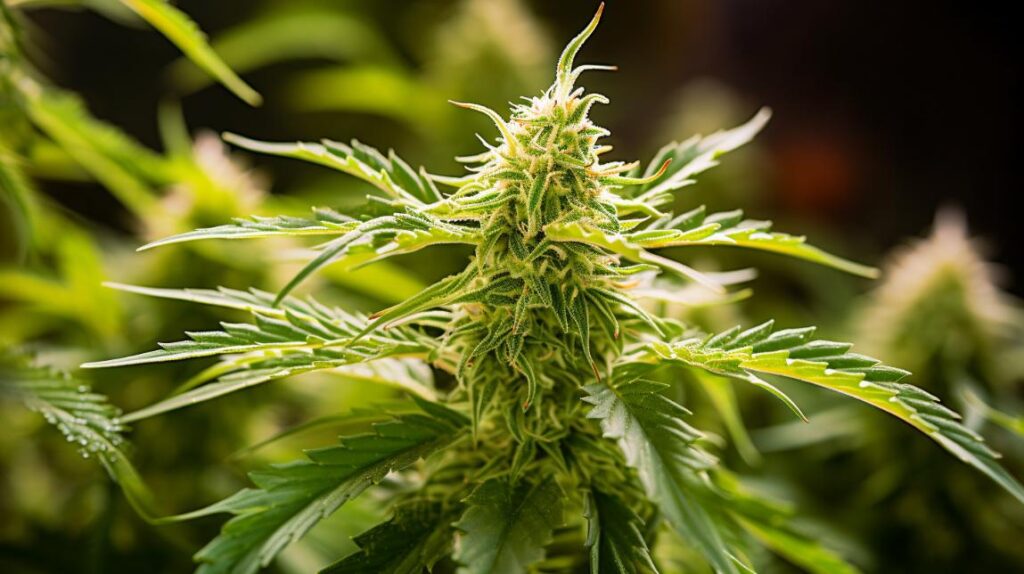

Responses